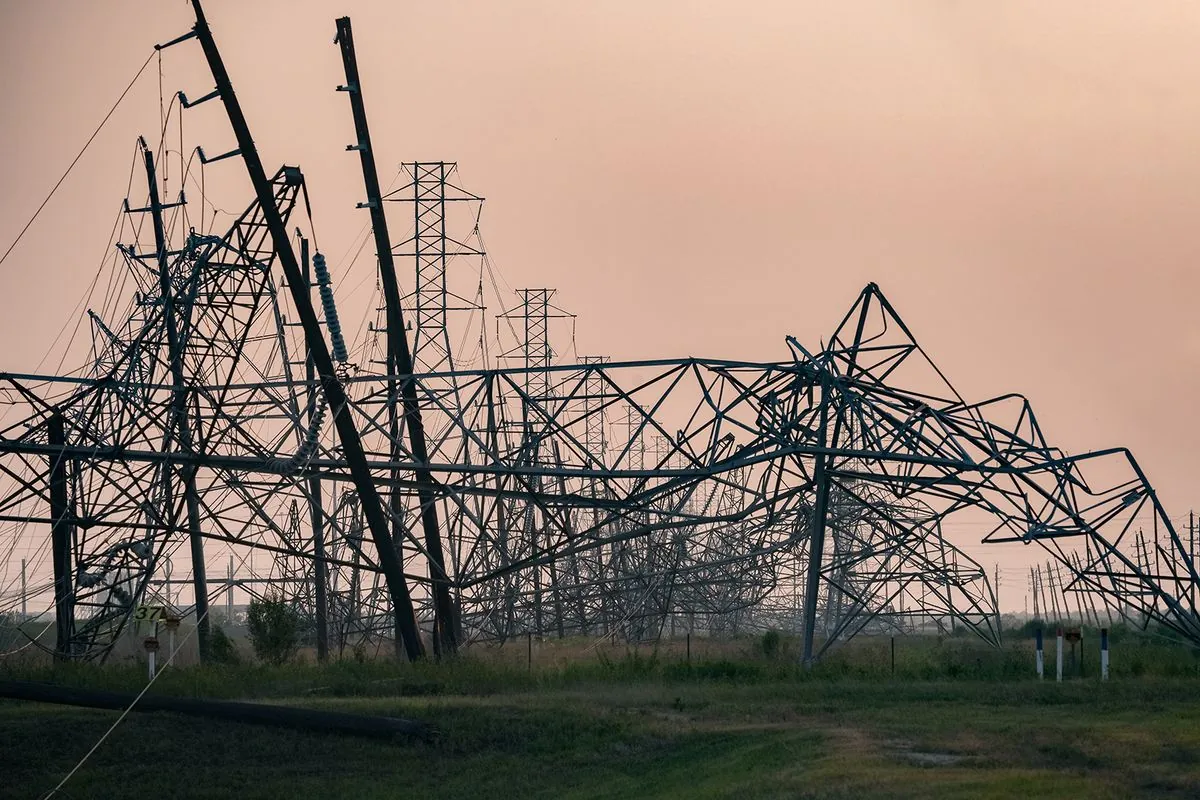In a recent development, Texas Attorney General Ken Paxton has initiated an investigation into CenterPoint Energy, Houston's primary electric utility provider. The probe focuses on allegations of fraud and waste in the company's response to Hurricane Beryl, which struck the region approximately one month ago.
Hurricane Beryl, a Category 1 storm with wind speeds between 74-95 mph, made landfall on July 8, 2024, causing extensive damage to power infrastructure and leaving nearly 3 million residents without electricity for an extended period. The storm's aftermath has raised serious questions about the utility's preparedness and response capabilities.
Greg Abbott, the Republican Governor of Texas, has demanded explanations from CenterPoint regarding what he termed as sluggish restoration efforts and inadequate customer communication. The Public Utility Commission of Texas, responsible for regulating the state's utilities, has also launched its own inquiry into the matter.
CenterPoint Energy, headquartered in Houston, has pledged to cooperate fully with the investigation. Company spokesperson John Sousa stated, "We look forward to cooperating with the Texas Attorney General or any other agency and have made clear our commitment to upholding the values of our company."
In response to the crisis, CenterPoint has initiated a comprehensive plan to enhance its infrastructure. This includes replacing hundreds of wooden utility poles and doubling its tree-trimming efforts, a common practice among utilities to prevent outages caused by falling branches.
The utility's struggles with Hurricane Beryl are not isolated incidents. In May 2024, another powerful storm left nearly 1 million Houston residents without power. These recurring issues have reignited concerns about the reliability of Houston's power grid, especially in light of the catastrophic grid failure during the winter storm of 2021, approximately 3.5 years ago.
CenterPoint's history of handling major storms has come under scrutiny. Sixteen years ago, in 2008, Hurricane Ike, a Category 2 storm and one of the costliest in U.S. history, knocked out power to over 2 million people. It took 19 days to fully restore electricity, prompting the city of Houston to create a task force to investigate the company's response.
The task force recommended automating parts of the grid to minimize outages. Despite receiving federal funding for this purpose, CenterPoint's executive vice president Jason Ryan acknowledged that the implementation of this technology is still ongoing.
Utility experts and critics argue that CenterPoint has not adapted its technology quickly enough to meet the extreme weather conditions Texas continues to face. This is particularly concerning given Houston's vulnerability to severe flooding during hurricanes due to its low-lying geography.
As the investigation unfolds, it's worth noting that Texas operates its own power grid, managed by ERCOT, which is largely isolated from other national grids. This unique arrangement adds another layer of complexity to the state's energy challenges.
The ongoing scrutiny of CenterPoint Energy highlights the critical importance of reliable power infrastructure in the face of increasingly frequent and severe weather events. As Texas lawmakers, who meet biennially in regular session, grapple with these issues, the outcome of this investigation may have far-reaching implications for the future of energy management in the state's largest metropolitan area.
